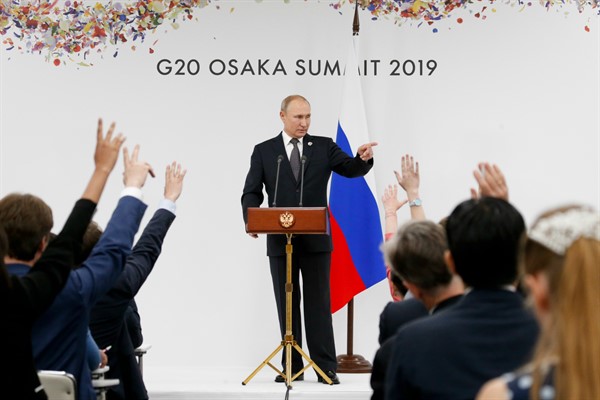Pity the U.S. officials in charge of planning this year’s Group of 7 summit. President Donald Trump initially planned to convene the annual summit at his own private golf resort in Miami. When this bit of self-dealing elicited bipartisan blowback, he shifted the site of the meeting, originally scheduled for this week, to Camp David. Then COVID-19 intervened, and the White House announced plans for a virtual summit, only to have Trump propose on May 20 that the leaders would gather in person after all. When German Chancellor Angela Merkel demurred, the peeved president pivoted again. On May 30, without consulting his G-7 partners, Trump abruptly cancelled their meeting and declared the group obsolete.
“I don’t feel that as a G-7 it properly represents what’s going on in the world,” he told reporters aboard Air Force One. “It’s a very outdated group of countries.” To remedy this situation, he announced that he would invite Australia, India, Russia and South Korea to join the existing members at an inaugural summit of the “Group of 11” in September, or perhaps November.
Leaving aside the zigzags, Trump’s rationale for expanding the G-7 is solid. There is a compelling case for opening the G-7’s doors to South Korea and Australia, both vibrant democracies with sizeable economies—the world’s 12th and 14th largest respectively. India, the world’s largest democracy and second-most populous country, with 1.3 billion people, also merits consideration.

